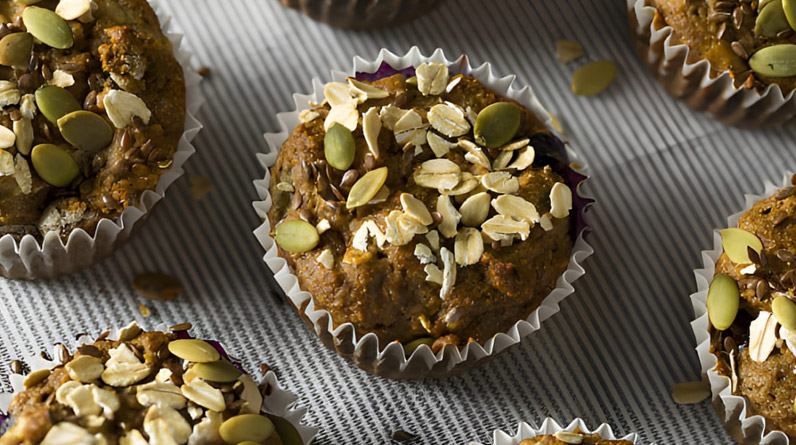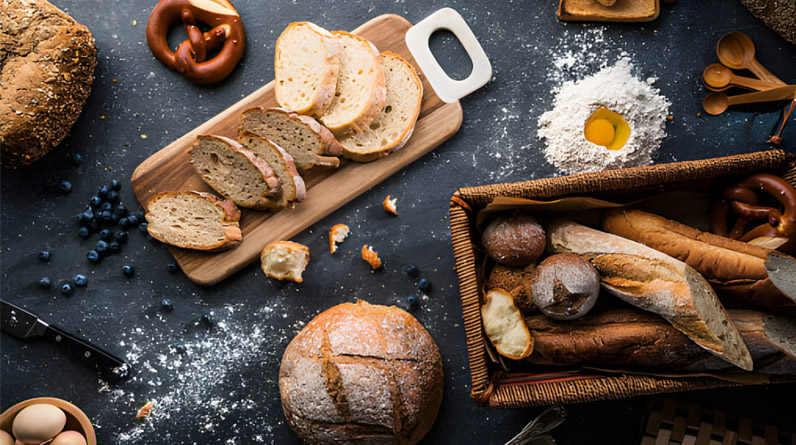You’ve logged hundreds of miles. You’ve invested in the best running shoes, cycling gear, or swim equipment. But here’s the truth most endurance athletes overlook: what you eat in the hours before training can make or break your performance.
According to research published in the International Society of Sports Nutrition position stand (2024), endurance athletes who consume properly timed pre-workout meals experience enhanced glycogen storage, improved performance, and delayed fatigue compared to those who train fasted. Yet many athletes still struggle with finding the right pre-workout fuel that doesn’t cause gastrointestinal distress.
Enter the pre-workout muffin—a game-changing solution that combines science-backed nutrition with practical convenience. Unlike commercial energy bars loaded with artificial ingredients, a well-crafted muffin delivers the exact macronutrient ratio your body needs, at precisely the right time, without the stomach upset.
The Science Behind Pre-Workout Fueling for Endurance Athletes
Understanding Your Body’s Energy Systems
Your muscles rely primarily on glycogen stores during endurance activities. Research from PMC Endurance Performance Studies (2024) confirms that carbohydrate feedings before endurance exercise consistently enhance performance, despite temporarily increasing insulin levels and reducing fat oxidation.
Here’s what happens when you fuel correctly: Your liver and muscles store carbohydrates as glycogen, providing immediate energy for the first 60-90 minutes of exercise. Without adequate pre-workout nutrition, you’re starting with depleted tanks—particularly problematic for morning workouts when overnight fasting has already reduced liver glycogen by approximately 80%.
The Optimal Macronutrient Balance
Sports nutritionists at University Hospitals (2025) recommend a specific carbohydrate-to-protein ratio for endurance athletes. The sweet spot? A 3:1 or 4:1 ratio of carbohydrates to protein consumed 1-3 hours before exercise.
This balance accomplishes three critical goals. First, carbohydrates maximize glycogen availability for sustained energy output. Second, moderate protein intake helps prevent muscle breakdown during prolonged exercise. Third, this combination maintains stable blood sugar levels, preventing the dreaded mid-workout crash.
Timing Is Everything
According to the American Council on Exercise nutrition guidelines (2025), meal timing significantly impacts performance outcomes. The general framework works as follows:
- 3-4 hours before exercise: Consume 3-4 grams of carbohydrates per kilogram of body weight with 15-20 grams of protein
- 2 hours before exercise: Scale down to 2 grams of carbohydrates per kilogram with moderate protein
- 1 hour before exercise: Stick to easily digestible options with 1 gram of carbohydrates per kilogram
For most endurance athletes, the 1-2 hour window before training represents the ideal timeframe for a pre-workout muffin—enough time for digestion without feeling heavy or sluggish.
Key Ingredients That Power Endurance Performance
Complex Carbohydrates: Your Primary Fuel Source
Oats stand out as the superior carbohydrate choice for pre-workout muffins. They provide slow-releasing energy through their low glycemic index rating, preventing blood sugar spikes and subsequent crashes. The beta-glucan fiber in oats also supports sustained energy release throughout your workout.
Research from Transparent Labs (2025) demonstrates that consuming low-glycemic carbohydrates before exercise attenuates metabolic fluctuations while maintaining glycogen availability during prolonged activity.
Bananas: Nature’s Energy Package
Bananas deserve their reputation as the athlete’s fruit. Each medium banana delivers approximately 27 grams of carbohydrates, natural sugars for quick energy, and 422 milligrams of potassium—an essential electrolyte that prevents cramping during endurance activities.
Beyond their nutritional profile, overripe bananas add natural sweetness to muffins, reducing or eliminating the need for refined sugars that can cause energy fluctuations.
Protein Powder: The Recovery Catalyst
Quality protein powder serves dual purposes in pre-workout muffins. According to the International Society of Sports Nutrition (2024), consuming protein before exercise can enhance glycogen synthesis and provide benefits to metabolism during prolonged activity.
For endurance athletes, whey protein isolate or plant-based alternatives provide essential amino acids without excessive bulk. Target 15-25 grams of protein per serving to support muscle preservation during long training sessions.
Greek Yogurt: The Moisture Maven
Greek yogurt contributes additional protein while keeping muffins remarkably moist. With approximately 15-20 grams of protein per serving, it amplifies the overall protein content while providing beneficial probiotics for gut health—increasingly recognized as crucial for athletic performance.
Healthy Fats: Supporting Long-Duration Activities
While carbohydrates take center stage for endurance fueling, strategic fat inclusion plays an important role. Nuts, nut butters, or coconut oil provide sustained energy for activities exceeding 90 minutes. Sports nutrition research from 2024 indicates that pre-exercise meals containing moderate healthy fats may help spare muscle glycogen during extended endurance events.
The Perfect Pre-Workout Muffin Recipe
This recipe has been tested by endurance athletes training for marathons, century rides, and triathlons. Each muffin delivers approximately 220-250 calories with an optimal 4:1 carbohydrate-to-protein ratio.
Ingredients
Dry Ingredients:
- 2 cups rolled oats (or 1¾ cups oat flour)
- 3 scoops (approximately 90g) vanilla protein powder
- 1½ teaspoons baking powder
- 1 teaspoon baking soda
- 2 teaspoons ground cinnamon
- ¼ teaspoon sea salt
Wet Ingredients:
- 3 large overripe bananas, mashed (approximately 1½ cups)
- 2 large eggs
- ½ cup plain Greek yogurt (0% or 2%)
- ¼ cup pure maple syrup or honey
- 2 tablespoons natural peanut butter or almond butter
- 1 teaspoon vanilla extract
Optional Add-ins:
- ⅓ cup dark chocolate chips
- ¼ cup chopped walnuts or pecans
- 2 tablespoons ground flaxseed for additional omega-3s
Instructions
Step 1: Prepare Your Workspace
Preheat oven to 350°F (175°C). Line a 12-cup muffin tin with paper liners or coat with non-stick cooking spray. For larger, bakery-style muffins, use tulip-style parchment liners to accommodate extra batter.
Step 2: Process the Oats
If using rolled oats rather than oat flour, pulse them in a food processor or high-speed blender for 30-45 seconds until they reach a flour-like consistency. Some texture is acceptable and actually beneficial for sustained energy release.
Step 3: Combine Dry Ingredients
In a large mixing bowl, whisk together the oat flour, protein powder, baking powder, baking soda, cinnamon, and salt. Ensure the protein powder is well distributed to prevent clumping.
Step 4: Mix Wet Ingredients
In a separate bowl, mash bananas thoroughly—the riper, the better for natural sweetness. Add eggs, Greek yogurt, maple syrup, peanut butter, and vanilla extract. Whisk vigorously until smooth and well combined. The mixture should be creamy with small banana chunks.
Step 5: Combine and Fold
Create a well in the center of your dry ingredients. Pour the wet mixture into the well and gently fold together using a spatula. Mix until just combined—overmixing develops gluten in the oats and creates dense, tough muffins. Some lumps are perfectly acceptable.
Step 6: Add Optional Ingredients
If using chocolate chips, nuts, or flaxseed, gently fold them into the batter now. Reserve a few chocolate chips to press into the tops for visual appeal.
Step 7: Fill and Bake
Distribute batter evenly among muffin cups, filling each about ¾ full. This typically yields 10-12 muffins depending on cup size. Bake for 20-25 minutes, or until a toothpick inserted in the center emerges clean and tops are golden brown.
Step 8: Cool and Store
Allow muffins to cool in the pan for 5 minutes before transferring to a wire rack. Once completely cooled, store in an airtight container in the refrigerator for up to 7 days, or freeze individually wrapped for up to 3 months.
Nutritional Breakdown Per Muffin
Based on a 12-muffin yield:
- Calories: 220-240
- Carbohydrates: 32-35g
- Protein: 9-11g
- Fat: 6-8g
- Fiber: 3-4g
- Sugar: 12-15g (naturally occurring from banana and maple syrup)
When and How to Consume Your Pre-Workout Muffins
Timing Strategies for Different Workout Lengths
For workouts under 60 minutes, consume one muffin 60-90 minutes before training. This provides adequate fuel without digestive discomfort during shorter, higher-intensity sessions.
For endurance activities lasting 90 minutes to 2 hours, eat one muffin 90-120 minutes pre-workout. Consider pairing with 8-12 ounces of water for optimal hydration.
For ultra-endurance events exceeding 2 hours, consume one muffin 2-3 hours before starting, paired with additional easily digestible carbohydrates closer to start time.
Individual Tolerance Testing
Every athlete’s digestive system responds differently to pre-workout nutrition. According to sports dietitians at Men’s Health (2025), the golden rule is never to try new foods on race day or during important training sessions.
Test your muffins during easy training runs or rides first. Monitor for any gastrointestinal distress, energy levels throughout the workout, and recovery quality. Adjust timing, portion size, or ingredients based on your personal response.
Customization Options for Specific Needs
For Early Morning Warriors
If you train at dawn and struggle with appetite, try eating half a muffin 30 minutes before and bringing the other half for mid-workout refueling. Pair with black coffee for an additional caffeine boost—research from Garage Gym Reviews (2025) indicates caffeine peaks around 45 minutes post-consumption.
For Gluten-Free Athletes
This recipe is naturally gluten-free when using certified gluten-free oats. Be vigilant about cross-contamination if you have celiac disease or severe gluten sensitivity.
For Plant-Based Athletes
Replace eggs with flax eggs (1 tablespoon ground flaxseed + 3 tablespoons water per egg, let sit 5 minutes). Use plant-based protein powder and ensure your Greek yogurt alternative provides comparable protein content—options like soy-based yogurts work excellently.
For Lower-Calorie Needs
Reduce maple syrup to 2 tablespoons or eliminate entirely, relying solely on banana sweetness. Omit chocolate chips and nuts. Use unsweetened applesauce in place of peanut butter. These modifications drop each muffin to approximately 150-170 calories.
Common Pre-Workout Nutrition Mistakes to Avoid
Mistake 1: Training Completely Fasted
While intermittent fasting has gained popularity, research from NFPT (2025) demonstrates that fasted training offers no fat-loss advantages for endurance athletes and may actually compromise performance. Studies comparing fasted versus fed training over one month found no significant difference in fat loss, but notable differences in training quality and muscle preservation.
Mistake 2: Eating Too Close to Training
Consuming food within 30 minutes of intense exercise diverts blood flow to digestion rather than working muscles. Allow minimum 60 minutes between eating and training, ideally 90-120 minutes for larger meals.
Mistake 3: Overloading on Fiber
While fiber supports overall health, excessive fiber immediately pre-workout causes gastrointestinal distress. The moderate fiber content in these muffins (3-4g) provides benefits without overwhelming your system.
Mistake 4: Neglecting Hydration
Solid nutrition means nothing without proper hydration. The American Council on Exercise recommends consuming 5-7 milliliters of water per kilogram of body weight starting 4 hours before exercise. Pair your pre-workout muffin with adequate water intake.
Beyond the Muffin: Building a Complete Fueling Strategy
During-Exercise Nutrition
For activities exceeding 60 minutes, supplement your pre-workout muffin with 30-60 grams of carbohydrates per hour during exercise. Options include sports drinks, gels, or easily digestible snacks.
Post-Workout Recovery
The International Society of Sports Nutrition (2024) emphasizes that recovery nutrition begins immediately post-exercise. Within 30-60 minutes of completing your workout, consume a meal or snack providing 15-25 grams of protein and 1-2 grams of carbohydrates per kilogram of body weight to maximize recovery.
The Bigger Picture
Pre-workout muffins represent one component of a comprehensive nutrition strategy. Daily training demands consistent carbohydrate intake of 8-10 grams per kilogram of body weight for endurance athletes, spread across multiple meals and snacks throughout the day.
Real Athletes, Real Results
Marathon runners have reported using these muffins during 16-week training blocks, noting improved energy consistency during long runs and faster recovery between training sessions. Cyclists incorporating them into their pre-ride routine experienced sustained power output during century rides without the gastrointestinal issues common with commercial energy products.
Triathletes preparing for Ironman competitions have adopted these muffins for early morning swim sessions, appreciating the balanced energy that carries through multiple training disciplines without causing stomach upset during transitions.
Final Thoughts: Your Path to Better Performance
Optimal endurance performance isn’t built on training volume alone. Strategic nutrition, particularly in the crucial hours before exercise, determines whether you merely complete workouts or truly maximize your athletic potential.
These pre-workout muffins deliver science-backed nutrition in a convenient, delicious package. They provide the optimal macronutrient ratio, utilize ingredients specifically chosen for endurance athletes, and offer customization options for various dietary needs and preferences.
Start by baking a batch this weekend. Test them during an easy training session. Adjust timing and portion sizes based on your individual response. Within a few weeks, you’ll have perfected your personal pre-workout fueling strategy—one that supports your training goals without the trial-and-error frustration that sidelines so many athletes.
Remember, the best pre-workout nutrition is the one you’ll actually use consistently. Make these muffins part of your regular meal prep routine, store them properly, and watch as improved fueling translates to better training sessions, faster recovery, and ultimately, superior race-day performance.
Your next personal best starts not on race morning, but in your kitchen, with ingredients that fuel greatness. Now get baking, and get ready to experience what properly fueled endurance training truly feels like.









